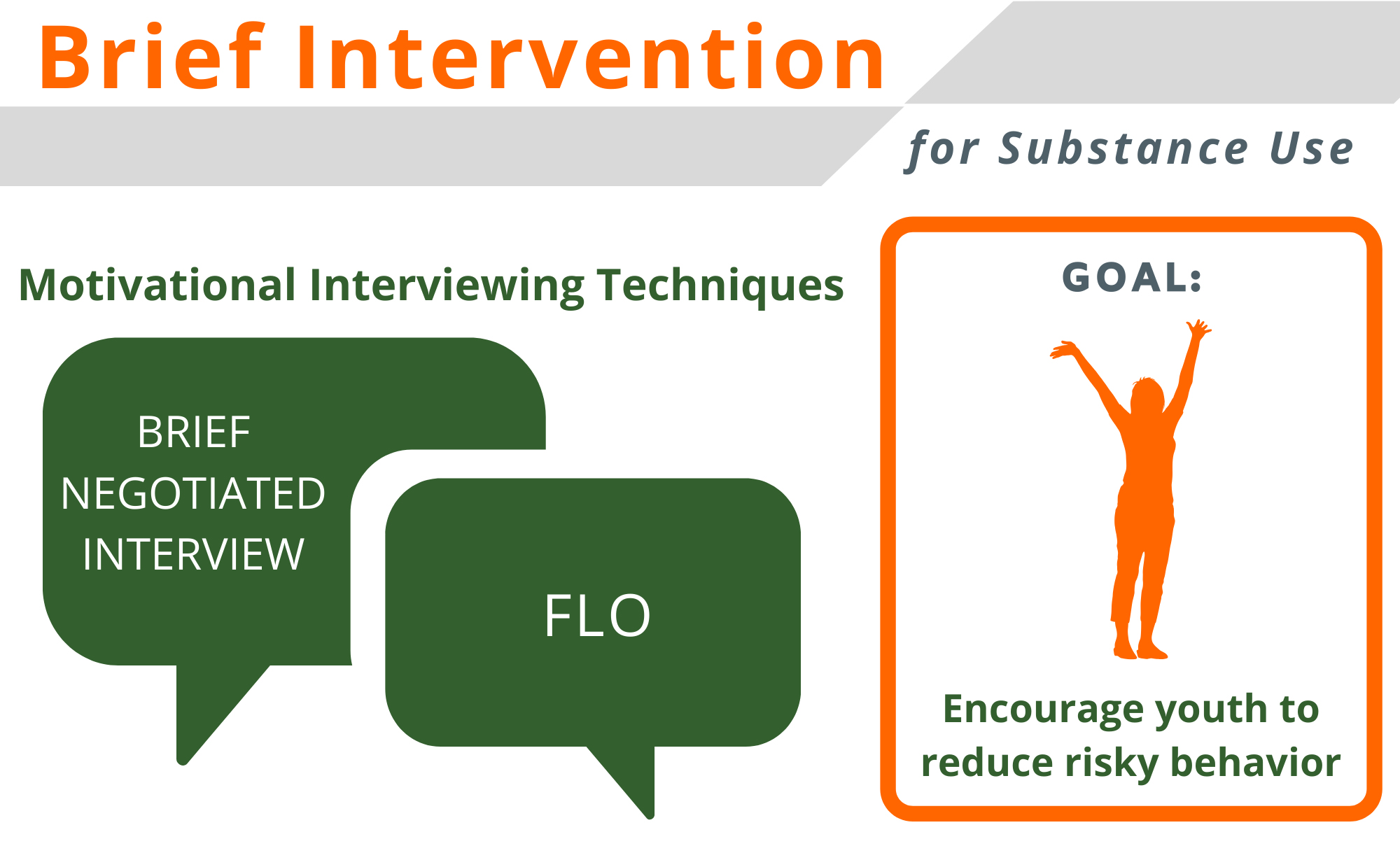
Why Adopt Brief Interventions for Substance Use?
- Nationwide, approximately 2.4 million youth age 12-17 report having used alcohol in the previous month, and 2.2 million report past month illicit drug use.1
- Opioid poisoning and mortality has significantly increased among both teens and young adults.2
- The vast majority of youth using substances do not have a substance use disorder (SUD) and therefore specialty SUD treatment would be clinically inappropriate.1 However, not addressing substance use increases the risk for serious health, educational, and social problems.3
Brief interventions are structured conversations designed to address alcohol and/or drug use among youth who are using substances, but do not need specialty SUD treatment. They are intended to be used when a young person screens positive for substance use or the need to discuss substance use emerges some other way.
The goal of brief interventions is to have a discussion aimed at reinforcing a youth’s self-determination to reduce their risky behavior. Brief interventions are designed to be delivered in non-SUD treatment settings such as SBHCs.
Motivational interviewing: The best way to conduct brief interventions
 Motivational interviewing is a collaborative, client-centered counseling style that guides individuals to elicit and strengthen their motivation for change.4 Rather than advising youth that they “should” or “need to” stop using alcohol or drugs, providers use motivational interviewing to have open conversations, using reflective listening skills and other conversational techniques to mobilize a young person’s own intrinsic values as motivation to change their substance use.
Motivational interviewing is a collaborative, client-centered counseling style that guides individuals to elicit and strengthen their motivation for change.4 Rather than advising youth that they “should” or “need to” stop using alcohol or drugs, providers use motivational interviewing to have open conversations, using reflective listening skills and other conversational techniques to mobilize a young person’s own intrinsic values as motivation to change their substance use.
Research shows that motivational interviewing is the most effective tool for achieving meaningful and lasting changes in substance use behavior within a relatively brief time period.5-6 Using motivational interviewing, providers can help youth identify their own reasons to either reduce substance use or stop altogether, and collaboratively develop strategies to achieve behavior change goals.
What are some techniques for brief interventions?
What are best practices when implementing brief interventions?
What should I do now?
- Share this quick guide with SBHC colleagues. Help raise awareness about SBIRT and reduce stigma about SUDs in the adolescent primary care community.
- Train providers on motivational interviewing.
- Develop “cheat sheets” with motivational interviewing techniques for providers.
- Create opportunities for providers to practice motivational interviewing with each other.








